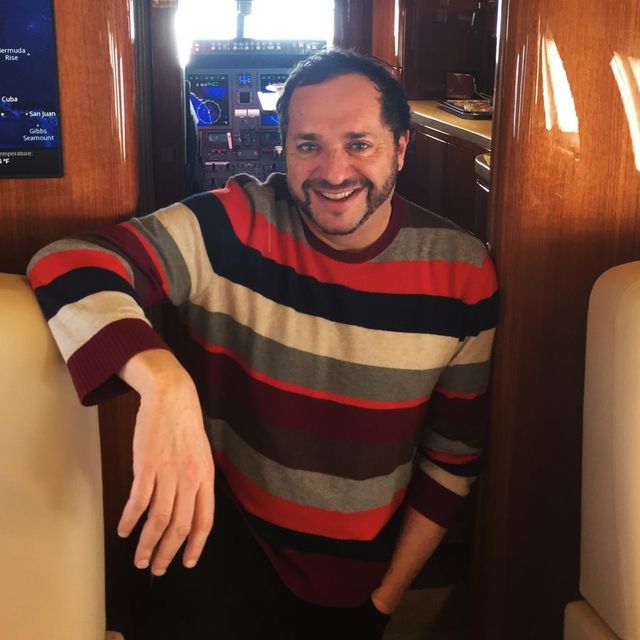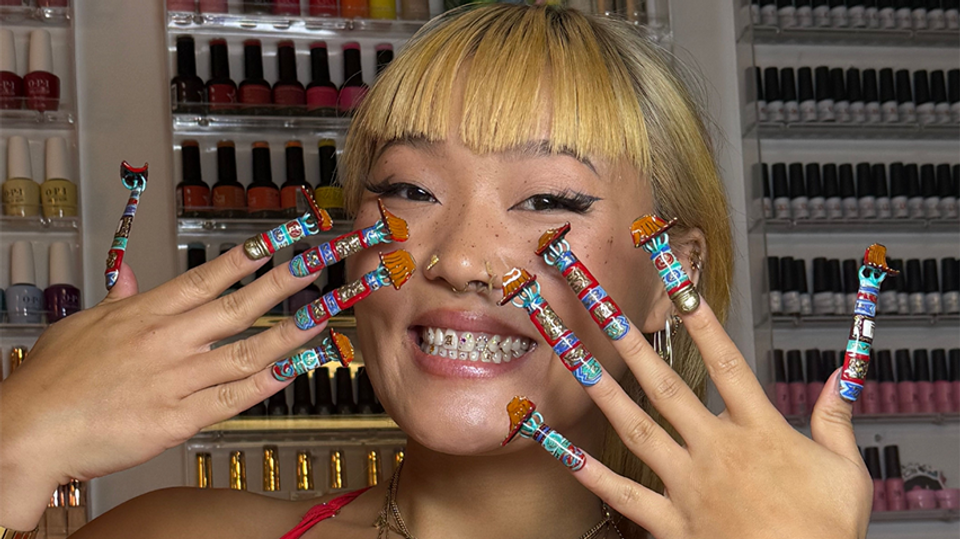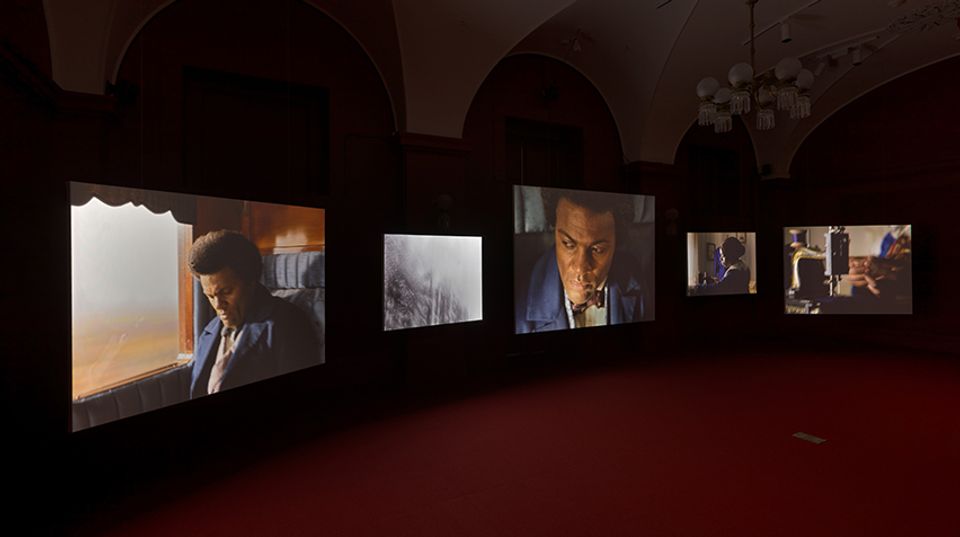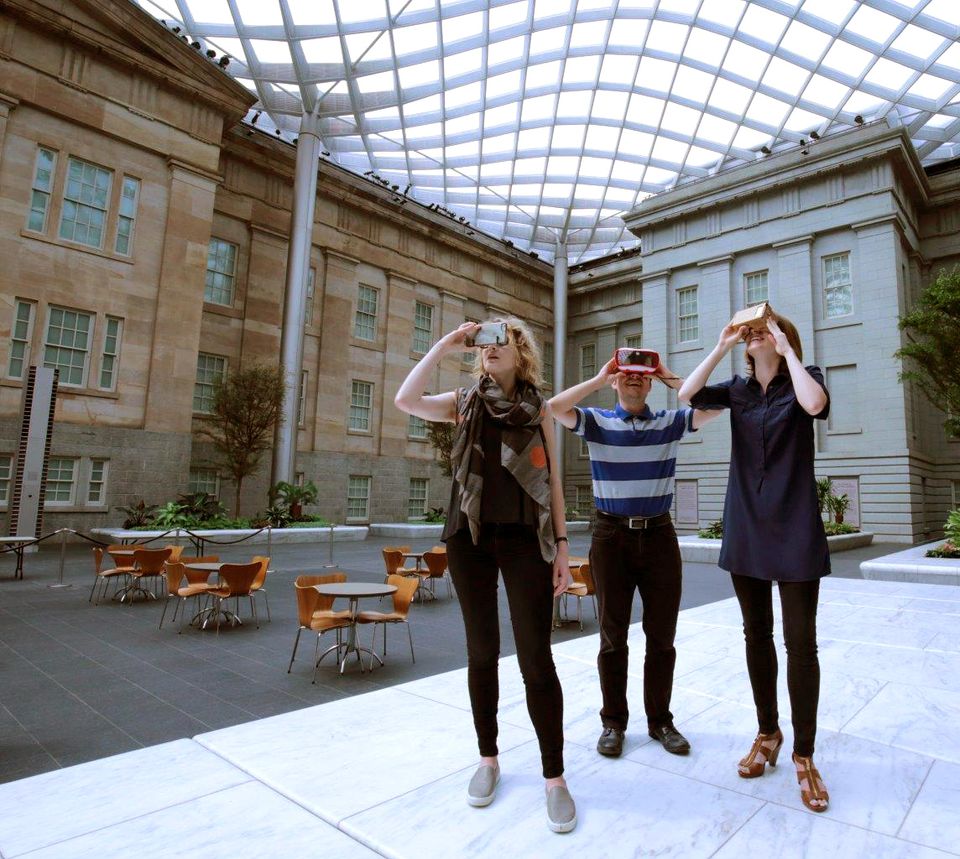
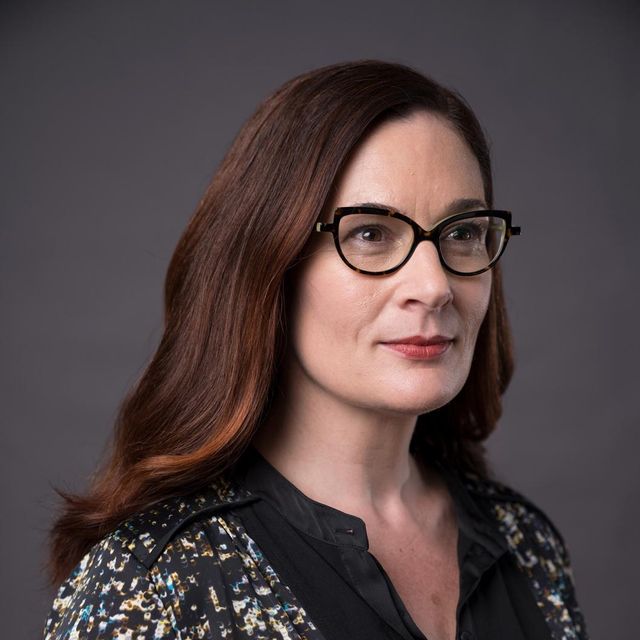
Last spring, I paid a solo visit to the Sainte-Chapelle in Paris, home to one of the largest collections of 13th-century stained glass in the world. I sat down on a bench and spent the better part of an hour observing the morning light as it traveled across the eastern windows, turning the narrow chapel into a blazing jewel box. It was a transporting, magical experience. Then I walked downstairs to the gift shop, and—typical tourist—bought a postcard.
I use my Sainte-Chapelle postcard as a bookmark. Every time I open my book and see it, I think to myself, "How beautiful! I wish I could be there again." I expect this is why postcards are a classic museum souvenir—they jog warm memories of places we’ve left behind. But wouldn't it be sweet if we could step inside a postcard and look around that faraway museum one more time, even if just for a moment?
“How could we capture the experience of WONDER and bottle it, before it was no more than a memory? Could we use technology to give people more to hold onto than just a postcard?”
—Sara Snyder, Chief, Media & Technology
That yearning to revisit a special place at a moment in time is what led my colleagues in SAAM's Media and Technology Office to create our new virtual reality app, “Renwick Gallery WONDER 360.” The WONDER exhibition was the most popular show in the Renwick Gallery's history, an extraordinary collection of site-specific, gallery-sized installations made from an array of unexpected materials. And though the artists of Sainte-Chapelle are separated by more than 700 years from the artists in WONDER, I can say I felt the same deep level of emotion when confronted by Gabriel Dawe’s soaring rainbows and John Grade’s epic hemlock that I felt when surrounded by the stained glass in that Gothic chapel. WONDER was a transporting, magical exhibition. It was also temporary.
Like many, many others, I took my share of Instagram photos of WONDER, and kept a glossy souvenir booklet (in lieu of a postcard). But as the exhibition’s closing date drew nearer, my colleagues and I became more anxious: how could we capture the experience of WONDER and bottle it, before it was no more than a memory? Could we use technology to give people more to hold onto than just a postcard?
As it happens, the year that WONDER opened to the public was also the year VR became a mainstream concept. Throughout 2015 and 2016, the technology to support 360-degree panoramic capture got better and cheaper, month by month. In March of 2016, Media and Technology producer Carlos Parada attended the SXSW Interactive conference in Austin, Texas, where there was a huge Virtual Reality presence. This provided the perfect environment to learn about the technology and network with developers. At SXSW, Carlos connected with a startup company, InstaVR, and saw the opportunity we were looking for: a system that would allow us to create an experience, in-house, to make people feel like were inside the gallery. This was very important for WONDER, a show in which the immersive installations needed to be experienced, not just seen.
So with only a few months left before the show’s closing, Carlos designed the interactive app. With several hundred dollars’ worth of new equipment and software—plus a whole lot of patience and perseverance—he managed to take hundreds of photographs of the entirety of the WONDER exhibition from a variety of vantage points in super high-resolution, stitching them into virtually seamless 360-degree files. Working together with InstaVR, we rolled the 360 panoramas, along with a number of artist videos, into native mobile apps for both the iTunes App store and Google Play.
We’ve launched "Renwick Gallery WONDER 360" as our first major experiment with producing immersive VR experiences. I hope you’ll download it, and please let us know what you think by rating it in the app store. This is just our first pass at VR, and we’re excited to keep on exploring the potential of this emerging technology to enhance and expand the variety of ways that art lovers can interact with their favorite museums. And since the app can be downloaded for free, you can step back in time and be transported into the WONDER exhibition for even less than the cost of a postcard. How WONDER-ful is that?















